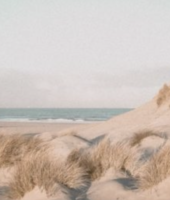At this year’s Bunbury Music Festival, Harness Magazine chatted with TRIIIBE, a collective group of artists featuring poet/lyricist Siri Imani, songstress Aziza Love and medical musician PXVCE.
Harness: For people who aren’t super familiar with you guys, can you tell me what TRIIIBE stands for?
Siri Imani: Yes, it’s actually an acronym. TRIIIBE stands for True
Representation of Intellectual Individuals Invoking Blvck Excellence. And that’s a whole lot, but basically we’re just activists. We provide positive representation for urban culture. We come from really hard areas and we’ve figured out ways to help the people that come after us by what we didn’t have. That’s mostly self-sufficiency. PXVCE can talk about a lot about that honestly.
PXVCE: Yeah, just basically being self-sufficient. Basically being independent, being unapologetic, being able to not compromise our art and also just speaking our truth and not being like violent about it. But just speaking our truth and not apologizing about it, and being independent and being able to create a tribe and a team that will allow us to do that instead of trying to sign and conform to somebody else’s.
Harness: Are you guys looking for a record label? Or is that something that you feel like will hold you back from doing what you’re doing?
Siri Imani: We indifferent about that. We are not looking for a label. I mean we’ll let them look first. We’re not looking for a label. We have a label. We’re TRIIIBE Worldwide, it’s a record label right now. We again, believe itself just in self-sustainability and that goes beyond just food. That’s business as well. We’re not opposed to a label, but it just has to be complete freedom.
PXVCE: Has to make sense. If the mission aligns, that’s the way it has to be. We’re not compromising art though. We’re not compromising ourselves period.
Siri Imani: It got to make sense. Yeah. It’s very unapologetic in our approaches and I think anybody who can deal with that and they want to collaborate with. But we like our independence.
Harness: You guys collaborated with Bootsy Collins. What was that like?
Siri Imani: Legendary.
At first it was mind blowing. It’s like how did we even end up here? But Bootsy is an artist and he’s a really genuine person that it began to just feel like, I don’t know, family, like we were there often. It wasn’t just for music either. Like we connected with him because we were activists and really it meant a lot to us that he was bringing us into more of the philanthropic side of him, the charities that he doing as well.
We would go to these elementary schools and show them art and just different ways to express themselves and Bootsy kind of hooked that up for us, you know? And then he also advocated for us for a lot in the music side too.
So just felt him really extended his hand, his resources to us and it meant a lot, it meant a whole lot. Then being in the actual space with him. PXVCE is honestly like a reincarnation of Bootsy, so them getting together was dope to see too, but us all being in that space, it was just magical.
PXVCE: It was humbling experience for sure. But it felt welcome and it felt like home. I feel like he definitely opened up his house, his space to us and the history of everything that he was talking about is really what affected us on and off stage. The things that he was talking about, it kind of just solidified and it was an affirmation that we were supposed to be doing what we’re doing because he’s seen a lot of what he was doing with Parliament and outside of music and with music. And he looked at us and was seeing a lot of the same things.
So that kind of just gave us more confidence in what we were doing. And just the affirmation, like we know that we’re supposed to be together and we’re supposed to be doing this on and off stage. Musically he really, really was opening up to us. Like he talks about the James Brown thing, like ‘always hitting it on the one,’ like something that he learned from James Brown, was one of the first things that he taught us too.
Harness: What does, ‘always hitting on the one’ mean?
Siri Imani: On the one, on the beat, on the actual beat.
PXVCE: Four count you just hit on the one. James Brown every time it just happened. Hit hard on the one. He said no matter what you do, you could play any type of riff, any type of instrument or melody in between, but you make sure you hit that one.
Siri Imani: That helped me too cause I was a poet before I ever stepped in. And the first time I ever rapped was on Bootsy’s mike. I was terrified and I’m like, I don’t know how to do that. I’m coming from only poetry background to rapping with TRIIIBE. And PXVCE and Aziza because they’re cool with it, you know what I’m saying? So I’ll be like, I’m just going to try it.
But it took a minute. I didn’t know that at the time. I’m thinking, I’m only capable of doing poetry, but like he’ll explain it; how to hit it on the one, and I do that to this day. Like the way I come in when I’m cutting until they burst or like a chorus, but it’s always on the one. And that’s something I definitely learned from Bootsy.

Harness: Which came first, the activism or the music? How did you guys put the two together?
Siri Imani: Activism definitely came first. That’s how we got together. That’s what drew us together. The music just explains the activism literally.
PXVCE: I think it’s just like life though. Because I mean with music, we all listening to music, I was still listening as a very influential music when I was growing up as well, that had a lot of activism within it. So I think that it’s, it was intertwined within itself. But activism was first. Just on the strength of life problems are first. I mean I can’t sing, I can’t rap, I can’t produce anything if I’m hungry or if I don’t have any shelter or if I’m struggling from a mental illness of some sorts, like if I can’t heal myself and I won’t be really able to produce in a space that I’m trying to. I think that’s why it comes first.
Siri Imani: We narrate. Our music is literally a narration and things that we have been through, experienced, seen somehow. So the activism comes first cause it’s the first action towards solving something. Then the music is literally a translation of what we’re trying to solve to other people. The activism definitely came first with us because that’s what draw us together. Like PXVCE, I don’t think he would shared a single beat with us if he hadn’t felt our heart first and it was just us coming together and like talking about the days that we want to see.
We all were in the city for enough time either growing up or being raised and just moving into the city, that we figured out what lacks based off of what we needed. So once we started talking about that, that gave us the topic for our writing. We didn’t just have purposes. Right? It wasn’t like, “Yo let’s just do some shit and say some shit.” You know. It was like we actually have something to say. We feel something, we’re talking about things and this is what it looks like in pen. That’s how we started, but it’s definitely activism before music and I think it always will be for TRIIIBE.
PXVCE: I think that we began to learn the power of music and how strongly and how powerful it is to put a message through music sometimes instead of being on somebody’s soapbox or somebody’s pool pit or preaching, but more so expressing, healing ourselves and using the power of frequency, the power of music because we have seen it played out in so much. In my life specifically, I listened to a lot of music that was not trying to tell me the right things. And as I grew up I began to have that transform and formulate in how I lived in my life.
So moving forward, it’s like, if I know that music was powerful enough to change my mind on things, I can imagine if I was listening to something that was telling me to take a look at the GMOs in my food or you know, take a look in the mirror sometimes and check yourself and be able to have accountability with friends. If those are the type of topics that I was listening to, maybe a different path would have been presented for myself. But not to complain about it, but we’re doing something about it now.
Harness: Who were some of those positive musical influences?
PXVCE: Oh, growing up? Like Outkast for sure. Definitely rock with Outkast for their originality. Lauryn Hill. Just for her rawness and truth, like the way that she wrote it was unapologetic. She kind of spoke about emotional things that you don’t always hear in rap.
Siri Imani: My momma. My momma and all the poets I grew up around in the city were activists. They were TRIIIBE before TRIIIBE was a tribe. They were the Watusi Tribe, the Rock Poet Society. They were all folks that were in the city and they got dismembered during the riots in ’94 and then again in 2004 and 2005. They were all doing the same things that we were doing. They did urban garden classes, they did book club. They did a whole bunch of culturally sustaining operations in the city, in addition to their music.
And they just ended up this memory, but I watched them. I got to watch them. That privilege, watching them as I grew up and watching their different styles and how they use their music and their words in general, their presence just to like a community and to doing what is necessary for it. That really helped me a lot with the vision for TRIIIBE. My personal vision for TRIIIBE, I see us being that way as well.
I think that artists in Cincinnati specifically have a lot of influence on the society in a way that we operate as a community, and if were doing and using responsible ways to do so, then I think that it’s just going to help us advance as a city in general. There’s just so much raw potential here and if it’s handled lightly and we all do the necessary healing that’s just needed in the city, then I think that we’ll be an LA, we’ll be an Atlanta, we’ll be all the places that people go to make it. But it’ll be right and it will be something that’s ours, we can hold and true to ourselves. That’s always been my vision for TRIIIBE. And seeing my mom start that definitely gave me the courage and just the responsibility even to do and finish that.

Harness: What else do you guys have going on? What are some of your other projects?
Siri Imani: We got a book club, we have urban gardening, we have expression and decompression courses for CPS. We have Raising the Barz, which is down at the library. It’s a hip-hop, or an intro in hip-hop class, because it’s also in content training. It teaches kids the importance of writing their own music, understanding what they’re writing about and how that affects everything around them from years beyond their existence. We also do yoga and meditation. Aziza specializes in mindfulness and movement.
We do Potluck for the People, which is one of my favorites and TRIIIBE Drive. Those are geared towards people who were displaced in our community as a way to give them hope into transitioning back into our community, and also providing the necessary resources for them to just survive out here and not constantly be in survival mode. Which anybody who’s been in survival mode will understand, it’s just not productive to your humanity, progression, a whole bunch of things.
Overall a lot of programs that we do that are meant to be enrichment programs, supporting the city. And we’re not professionals at all, but we just come up with an idea and a result that we want to see, and we invite other people to come in and it’s been successful because people really want to change. I don’t think anybody in the city wants to see the city crumble or anything. So because of that, people have been really willing to go outside of what they’re used to and join some our events where we figure it out together as a city and we just keep trying.
PXVCE: I was just going to speak more about Aziza, who’s not here right now. But she has the Camp Washington space, so if anybody listening and they’re trying to get involved, that’d be a good time. I think classes are starting up for that in June and July.
Basically just talking, speaking and living what we’re talking about. And just not being the people that are just speaking things and not following through with it. I really think that’s what builds our fanbase so strongly. We have people that are family because we are doing what we’re saying, and if even if we’re not doing it all the way, we definitely are trying. We’re putting our best foot forward and we ask for more help so we can, like she said, “the idea doesn’t die.” The idea is bigger than all three of us. But we feel ourselves as vessels, you know what I mean? Just to push the message and meeting new people along the way that are the same as us.
Harness: We talk a lot about mental health at Harness. We share a lot of mental health stories, would you guys want to speak to your journey with mental health in this experience and with your music?
Siri Imani: Absolutely. I just did a seminar on mental health, but I think where each one of us were born, I was born in Cincinnati or I was born in San Diego and raised mostly in Cincinnati. Aziza was born in Cincinnati, PXVCE was born in Cleveland. But we were all born in an areas that didn’t have a lot of resources. We’re financially desperate, honestly, and just didn’t have. So the desperation and the need was definitely grown as we grew up, and we saw a lot of things that just will traumatize anybody. I’m a firm believer of anybody who grew up in the hood has suffered from PTSD. It’s things that we were not meant to see.
Like nobody was meant to see things go down like that. Nobody was meant to look for them at their next meal, or hope if they even got it. See people hurt, see people shot, die, whatever. It’s just things that aren’t normal and aren’t meant for us to experience. We have to live with that, then we have the decipher that, we have to unlearn that and then relearn a way to actually function in society. And that’s something that we all went through.
Whether we were in front of it or whether we just spectated it. That was something that we saw, that we experienced in adulthood and were able to turn around. That’s powerful because there’s a lot of people who are still on the street that I grew up in, who will probably always be on the street that we grew up on. They might have the mental capacity to surpass me in ways that I don’t even know, but it’s just a chance thing, it’s a nurture thing, you know? Because of that, we really feel the responsibility to show people the other side of healing from that.
I think this is always a great quote, “we’re not responsible for the trauma we experienced, but we’re definitely responsible for healing.” Through that, you see what’s capable of a whole community. If everybody takes the time to just heal from what they experienced, then you see beautiful results.
PXVCE: Specifically to me, when I got with them, I was able to check a lot of the things that I was doing a lot more. And being able to put it in a box and be able to say, “oh well there may be some types of things going on. There may be some illness that’s going on.”
I raised my auntie who suffered from Down syndrome and who had mental illness, so I’m like definitely not shy or unfamiliar with it. But I think that being able to look on the inside and music challenged me to do that. I’ve been able to express in certain ways and be able to put something in a different format in a different medium because you may not be able to speak it, but you may be able to write it.
You may be able to put it in within a beat or specifically using Hertz and frequencies, and learning what certain frequencies do to the mind and learning that if you listen to certain frequencies, you may have less anxiety. You may be prone to more anxiety if you’ve listened in this certain type of music. So being able to watch what I’m listening to for my health and for everything, that began to become important. Because like I said, I was a trap baby, listening to all that type early in the morning. I’m just listening to maybe the rowdiest things you could ever think of as I’m waking up.
But to change that and maybe listen to the meditation or maybe listen to different things that resonate definitely to my soul. It definitely has changed the way that I think and began to become healing in itself.
Siri Imani: Yeah, that’s important. I think just the different exposure and recognizing what you hadn’t been exposed to. There’s people, and I’ve been a person too, who never realized the trauma that I experienced and because of that I’m just transferring energy that never should’ve been sitting with me in general. I think that we’re doing a good job at clearing that. Understanding just a clean slate.
It’s a shift I think, in humanity and the way that we’re thinking in general right now. We’re a lot of different types of thinkers that are born into a society that was already predetermined before us. And it’s really hard to not be susceptible to mental illness. Like that’s really hard to deal with in general. So understanding the reality that you can create for yourself, based off what you want to see, we both grew up in realities that we did not want and because of that we created different realities for ourselves. And understanding and showing other people just the option.
We never want to preach, but we do want to show other options. If that is something that resonates with you, if this isn’t something you want, there are other ways that you can get out of it. There’s other ways that you can progress it, I would say, and then also heal it. I’m really confident that we’ll help a large part of the world heal one day and that’s my biggest goal for TRIIIBE. I think if we can help the world heal, if we can help ourselves heal, then it’s just going to be a different type of progression.
Our whole age range is going to be the oldest group of people at one point in this world and everything under us is going to be all our ideas. And if we do and believe the right things, or things that are conducive and not toxic to just humanity and everything around us, then it’s gonna be a beautiful thing to witness years from now. Which we might not experience, but it’s still gonna be dope that our lineage experiences that as well.
So TRIIIBE, it’s a little bit of Afrofuturism as well. We understand our message might not even resonate at this time, but somebody 330,000 years from now, will get it and it’ll have the charisma and just energy to really translate it in a way that affects everyone. That’s going to be dope to see from wherever I am.

Harness: Is there anything else you would want people to know about you guys?
Siri Imani: No, I mean we’re local.
Harness: Where can people find you? Where can people reach out to get involved?
PXVCE: TRIIIBE Worldwide.
Siri Imani: TRIIIBEWorldwide.com. That will show you where we are everywhere. Facebook is TRIIIBE LLC, Instagram is @TRIIIBE333. But just find us, we’re in the city.
PXVCE: Our music is on there as well.
Harness: You seem to be everywhere all the time.
Siri Imani: Everywhere all the time, but we’re just people in the city. So come talk to us. There’s so much, there’s so much potential in all of us and TRIIIBE is not the extent of that. We all just literally are. So if we can help you with anything, if you could help us with anything, just connect with us. That’s really what we want.
Harness: Are you guys going to be on tour this summer? What’s new or coming up?
PXVCE: Yeah we got a lot of festivals coming up. Resonance Festival in Pennsylvania, Sayler Park Sustains at the Sailor Park, CMF (the Cincinnati Music Festival) and we’re book more. But those are the big festivals. We got some smaller shows as well.
Siri Imani: We just got back from LA and Texas.
PXVCE: Chicago.
Harness: Are you guys in the studio right now working on any new stuff?
Siri Imani: Most definitely. We dropped on 10/10 last year. We dropped on 10/10 this year. We’ll drop on 10/10 next year, we’ll drop on 10/10 and so. Last year was “III Am What III Am,” this year is “III Am What III Want to Be.”






